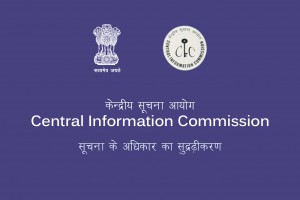Central Information Commission (CIC): Uday Mahurkar, Information Commissioner, reiterated that the candidates/students have the right to access their own answer sheets as per the provisions of the Right to Information Act.
In the present matter, the appellant sought the information regarding his own answer sheets which were evaluated and marked for all the subjects under the Limited Departmental Competitive Examination for promotion to the cadre of Assistant Accounts Officer.
Appellant submitted that he should be provided with the same as per the Supreme Court decision. Further, he added that there has been adequate suspicion that the respondent may destroy the Answer Sheets related to the LDCE – AAO, 2018 exam citing its record retention policy. But the same was denied by the respondent and an assurance was provided that no such act had been undertaken to destroy the answer sheets related to the said exam.
Commission in a plethora of earlier decisions decided that answer sheets should be furnished to the applicants in his own case and the same stand was taken by the Commission in the present matter also.
Respondent had been citing the Supreme Court’s decision in UPSC v. Agnesh Kumar, (2018) 4 SCC 530, which was limited to the Competitive Exams and did not cover the Departmental Exams per se held by the Public Authorities nor was applicable to situations where it was prima facie made out that larger public interest was involved.
Analysis, Law and Decision
Commission stated that the issue involved in the present matter of candidate’s access to his/her own answer sheet has been long settled by the Supreme Court in the decision of CBSE v. Aditya Bandopadhyay, (2011) 8 SCC 497, wherein following was held:
“…every examinee will have the right to access his evaluated answer-books, by either inspecting them or taking certified copies thereof unless the same was exempted under Section 8 (1) (e) of the RTI Act, 2005.”
Relevant observation from the above decision:
“11. The definition of „information‟ in Section 2(f) of the RTI Act refers to any material in any form which includes records, documents, opinions, papers among several other enumerated items. The term „record‟ is defined in section 2(i) of the said Act as including any document, manuscript or file among others. When a candidate participates in an examination and writes his answers in an answer-book and submits it to the examining body for evaluation and declaration of the result, the answer-book is a document or record. When the answer-book is evaluated by an examiner appointed by the examining body, the evaluated answer-book becomes a record containing the ‘opinion’ of the examiner. Therefore, the evaluated answer-book is also an ‘information’ under the RTI Act.”
In the Supreme Court decision of Mradul Mishra v. Chairman, UPSC, Civil Appeal 6723 of 2018 it was held that:
“14. In our opinion, permitting a candidate to inspect the answer sheet does not involve any public interest nor does it affect the efficient operation of the Government. There are issues of confidentiality and disclosure of sensitive information that may arise, but those have already been taken care of in the case of Aditya Bandopadhyay where it has categorically been held that the identity of the examiner cannot be disclosed for reasons of confidentiality.
- That being the position, we have no doubt that the Appellant is entitled to inspect the answer sheets. Accordingly, we direct the Respondent – U.P. Public Service Commission to fix the date, time and place where the Appellant can come and inspect the answer sheet within four weeks.”
What is the link between the permission to access the answer sheet and the candidate’s right to life and livelihood?
Hence, in view of the above elaborative discussion, Commission held that the present issue involved larger public interest affecting the fate of all the students/candidate who wishes to obtain information regarding their own answer sheet which would have a bearing on their own career and in turn would ostensibly affect the right to life and livelihood.
Therefore, allowing a student to inspect their own answer sheet ought to be allowed as per the provisions of the RTI Act, 2005.
Decision
Therefore, in the present matter, the Commission directed the respondent to furnish a copy of the candidate’s own answer sheet as sought in the RTI Application within a period of 30 days from the receipt of this order.
In view of the above, appeal was disposed of. [Venu C v. CPIO, General Manager (Finance) Postal Accounts, Department of Post; 2021 SCC OnLine CIC 4306; decided on 24-05-2021]

